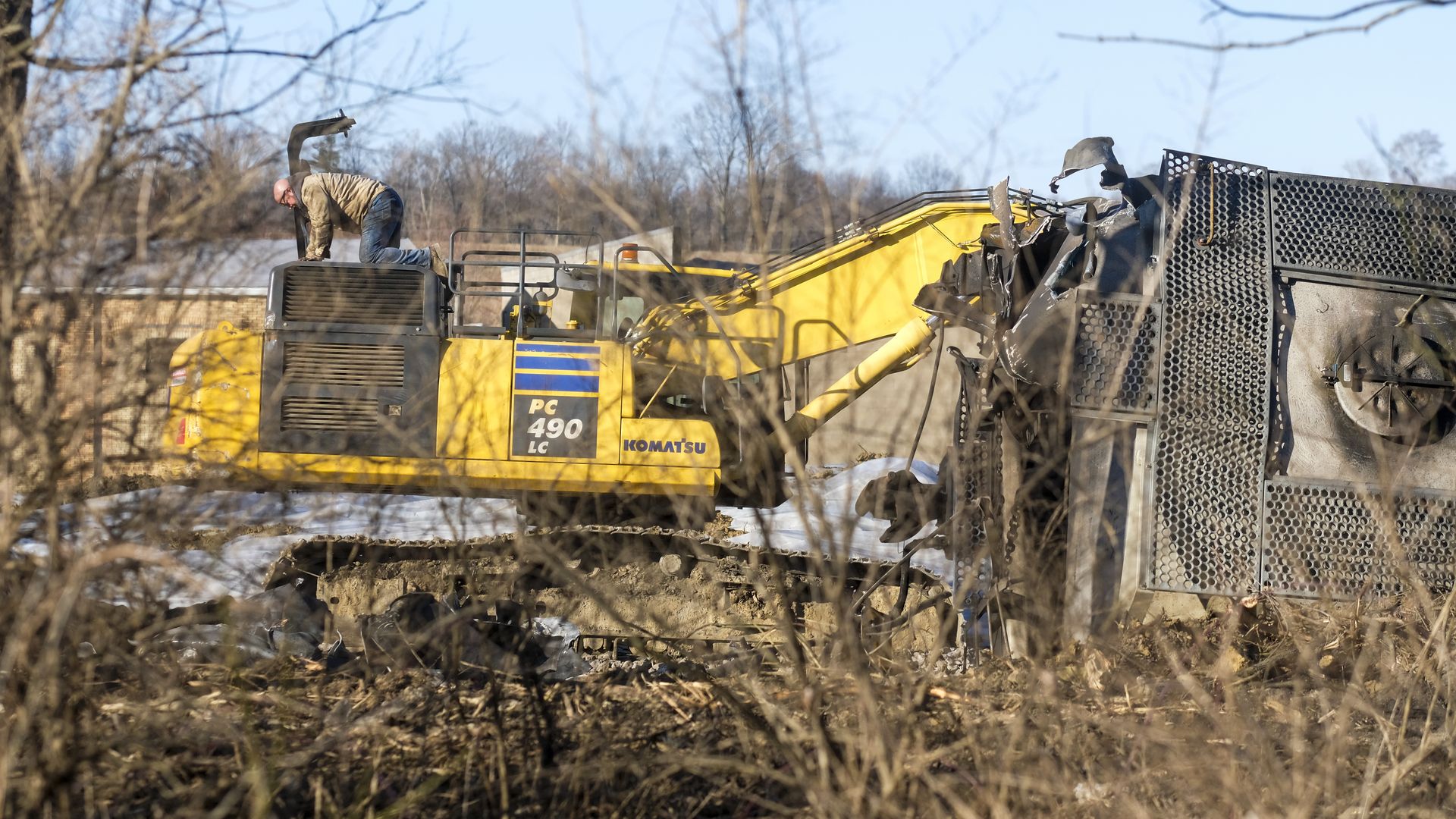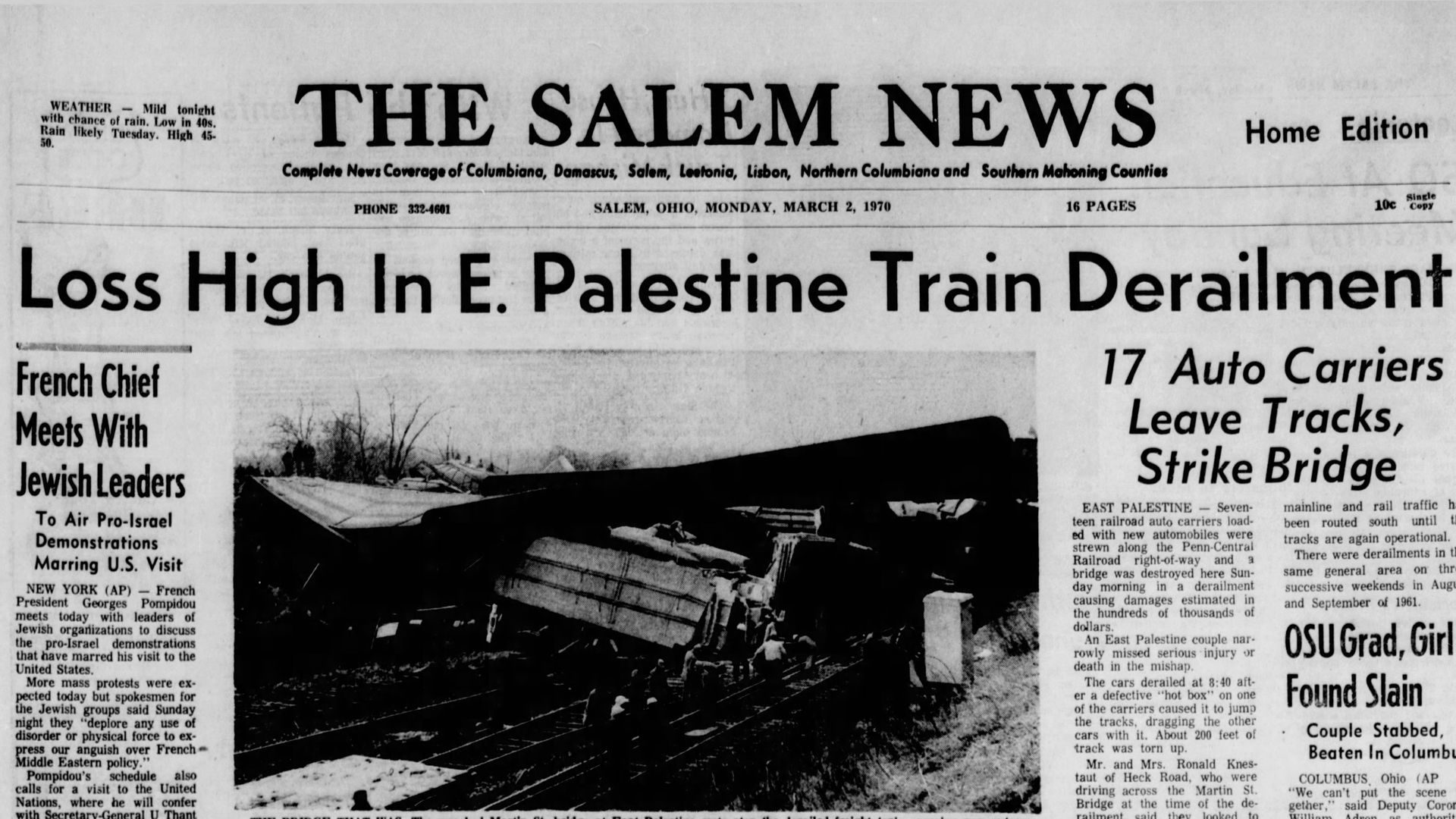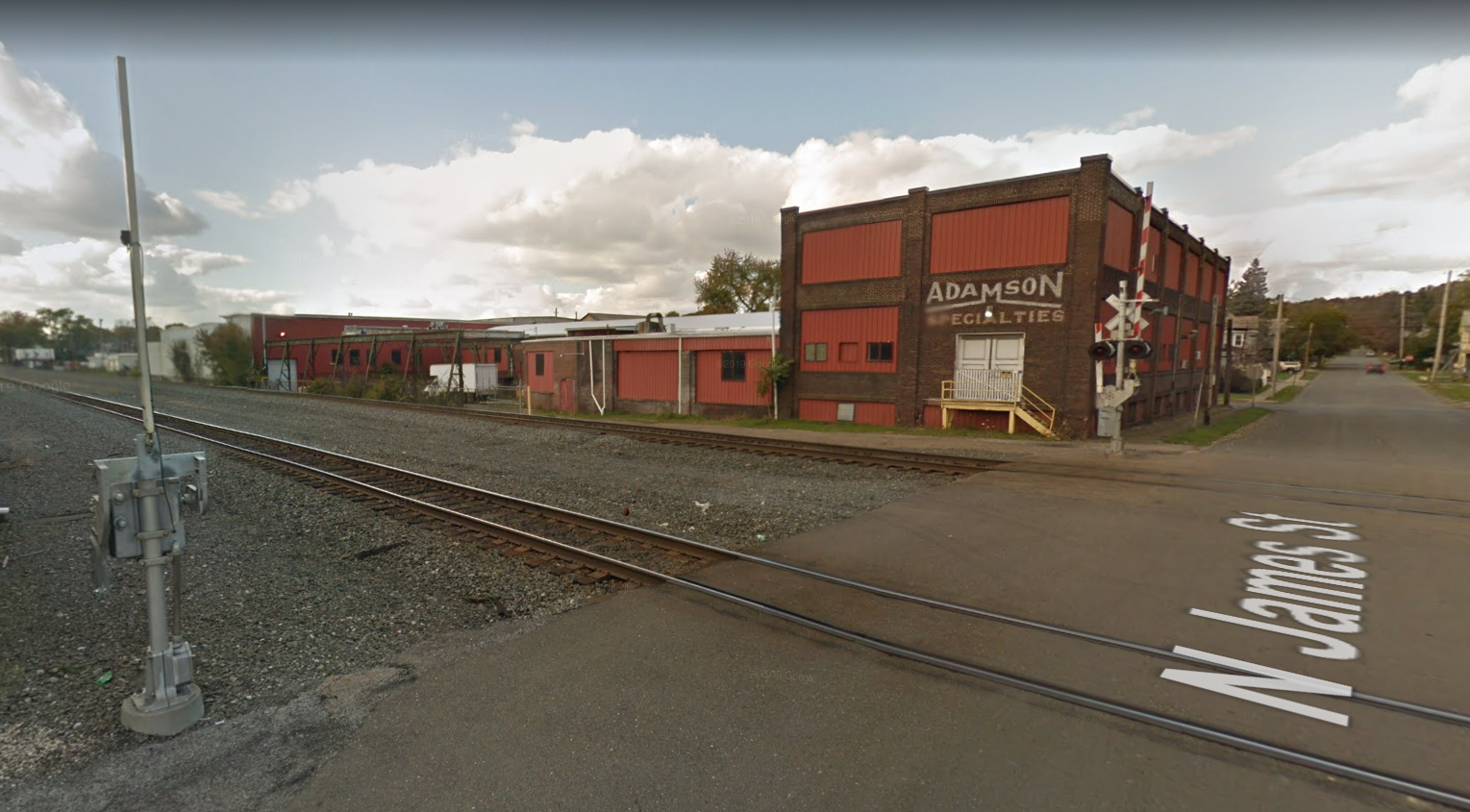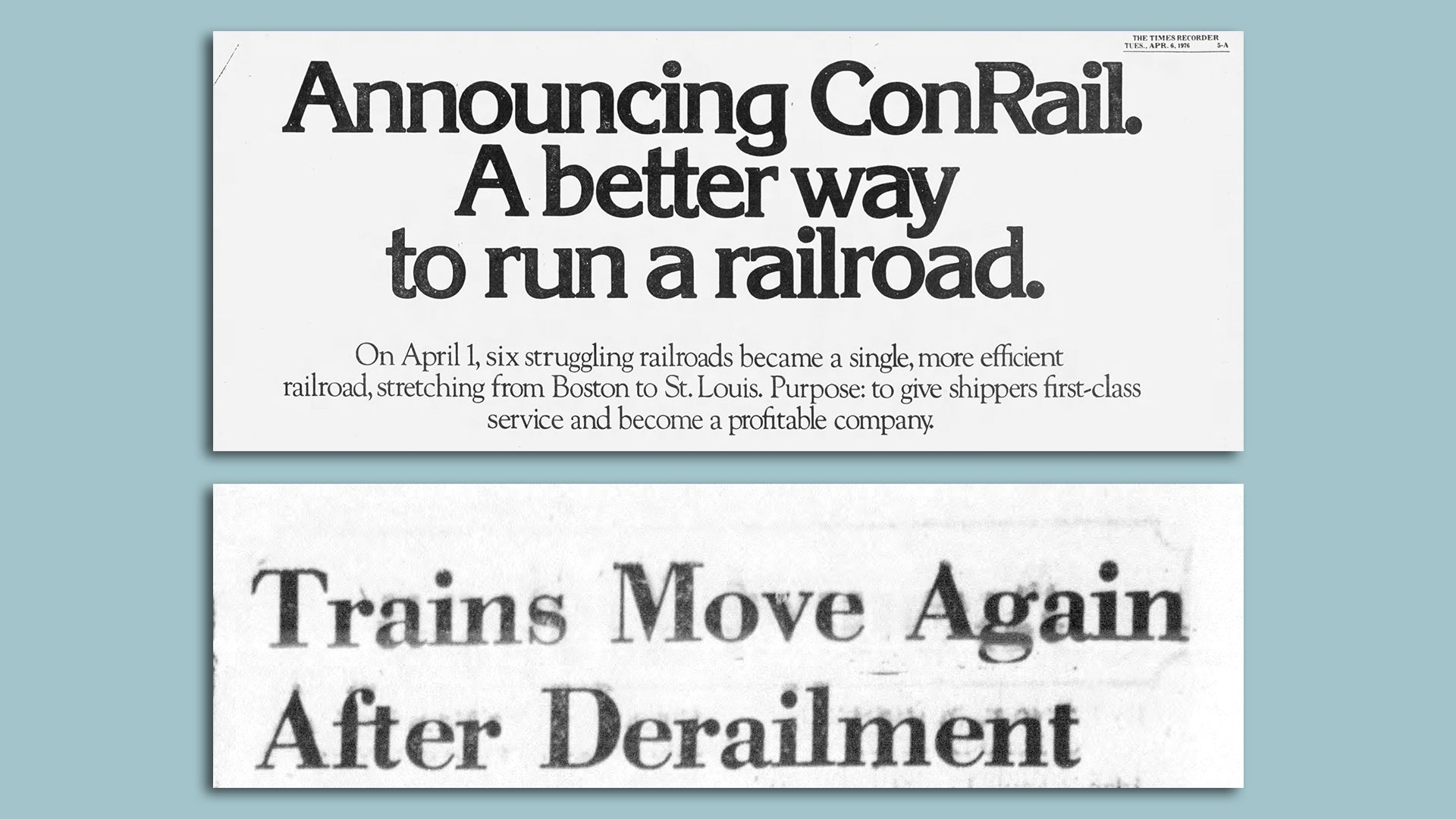The Ohio derailment is spurring Congress to actually do something about train safety
A group of senators have quickly come together with a bill that could change the way the rail industry operates.
/cdn.vox-cdn.com/uploads/chorus_image/image/72031185/1247331928.0.jpg)
EPA orders Norfolk Southern to test for dioxins in Ohio train derailment
02/03/2023
Axios 
Work crews and contractors remove and dispose of wreckage from the site of the Norfolk Southern train derailment in East Palestine, Ohio on Feb. 20. Photo: Matthew Hatcher/Bloomberg via Getty Images
The Environmental Protection Agency (EPA) on Thursday ordered freight train operator Norfolk Southern to test for toxic pollutants that could have been released as a result of the company's decision to burn vinyl chloride from cargo on its derailed train in East Palestine, Ohio.
Why it matters: Norfolk Southern had at the time said that burning the cargo was necessary to prevent the threat of explosions from the hazardous materials in the train, but has since faced heightened scrutiny over the move and its possible impacts on the surrounding community and environment.
- The EPA said that monitoring for indicator chemicals at the site suggests the probability of dioxin contamination is "low," but made the decision to mandate testing out of an "abundance of caution.”
Details: The EPA's order — made almost a month after the train derailed — mandates testing for dioxins, which the agency considers "persistent organic pollutants" because they take a long time to break down once released into the environment.
- Dioxins are highly toxic and cancerous. They can damage the immune system and interfere with hormones, developmental processes and reproductive health.
- Dioxins typically form during the burning of fuel and waste and can remain in soil for decades, contaminating plants and crops used in the food chain.
- The possible accumulation of dioxins in East Palestine due to the train derailment could as a result pose long-term risks, a concern community members have raised.
- Worth noting: The order comes ahead of a meeting in East Palestine on Thursday night, where Norfolk Southern representatives are expected to be grilled by community members and local officials.
- The company backed out of a similar town hall last month, citing unspecified concerns for their employees' safety.
The big picture: The EPA has mandated that Norfolk Southern clean up the contamination from the site of the derailment.
Rail union says workers experiencing migraines and nausea at East Palestine train derailment site


Mar 02, 2023
EAST PALESTINE, Ohio — A rail union leader revealed new safety concerns at the East Palestine train derailment site after some workers fell ill during the cleanup process.
The union is demanding action and immediate answers regarding the derailment and safety protocols in place.
Jonathan Long, the general chairman of the American Rail System Federation, sent a letter to Gov. Mike DeWine pleading with him to do something before an even bigger tragedy occurs.
The letter states that Norfolk Southern instructed 40 of its maintenance employees to come to the site and begin cleaning up the wreckage. It also says that employees continue to experience migraines and nausea after being willingly exposed to the chemicals at the direction of Norfolk Southern. Long also wrote in his letter that workers cleaning up in East Palestine were not provided with the appropriate personal protective equipment such as respirators, eye protection or protective clothing.
Norfolk Southern has disputed the claims about the lack of PPE provided.
In a statement, the company said they were on-scene immediately after the derailment and coordinated their response with hazardous materials professionals who were on site continuously to ensure the work area was safe to enter and that the required PPE was utilized, in addition to air monitoring that was established within an hour.
Congress is expected to hear testimony from the CEO of Norfolk Southern Railroad next week over the derailment and the company's involvement in recovery efforts.
Committees in the house and senate are both expected to hold hearings on the derailment.
This article was written by Scripps News Cleveland.
East Palestine's record of devastating derailments
- Tyler Buchanan, author of Axios Columbus Mar 1, 2023 -

From the March 2, 1970, edition of the Salem News, via Newspapers.com
Long before the Feb. 3 Norfolk Southern derailment exposed East Palestine to hazardous chemicals, residents suffered from a series of devastating rail car derailments that destroyed businesses, ruined local infrastructure and often left the city stuck paying for the damage.
Why it matters: Earlier generations urged stricter railroad oversight to prevent a major disaster like the one with which their community now reckons.
- Their pleas, which went largely ignored at the time, are followed a half-century later by nearly identical calls for better safety regulations.
What they're saying: No single regulation enacted back then could have prevented the 2023 crash with 100% certainty, says Anne Junod, a senior research associate at the Urban Institute who studied train derailments as a Ph.D. student at Ohio State University.
- But the longstanding inaction helps showcase railroads' record of valuing profit over proactive safety measures, she tells Axios — a cost-benefit analysis that continues putting rural communities like East Palestine in harm's way.
- "There's a constellation of problems that have deep historical roots."
By the numbers: An Axios review of hundreds of old newspaper clippings across the state and into Pennsylvania identified at least nine freight derailments in East Palestine between 1946 and 1976.
- Three occurred in a span of just two weeks in 1961, the final of these causing extensive damage to a nearby pottery factory.
- Several derailments were caused by poor track condition, which railroads are responsible for maintaining.
The intrigue: All nine happened on the same line now owned by Norfolk Southern.
Flashback: A 1970 derailment sent a Penn Central Railroad train careening into an East Palestine bridge. A married couple driving atop the bridge narrowly escaped harm.
- Penn Central initially agreed to finance a new bridge, but declared bankruptcy soon after and never paid.
- The bridge sat unfixed for years, making it difficult for emergency crews to reach certain parts of town when rail crossings were frequently blocked.
- The city and county wound up footing the bill for a replacement.
The most catastrophic crash to date happened in March 1973, when a late-night Penn Central emergency stop caused its back cars to collide with those in front, "kinking" the track.
- Crew members rushed to get the train going again and left town 40 minutes later, apparently not noticing damage to the rail line.
- Shortly thereafter, an Amtrak passenger train derailed at that spot and crashed into a nearby fabricating plant.
- A Penn Central employee on board was killed and 19 others were injured, including two small children.

By that point, city officials had had enough and pleaded with then-Gov. John Gilligan for help.
- Widespread anger was directed toward the Public Utilities Commission of Ohio's "rather casual response to complaints lodged against the railroad by the municipality," one newspaper reported.
- "We need the railroad, but we also need the lives of the people in the community," nearby Leetonia Mayor Albert Wardingley said.
Context: Penn Central was a literal and figurative "wreck" at that point, H. Roger Grant, a prominent railroad historian at Clemson University, tells Axios.
- The company was hurt by deteriorating rail infrastructure, poor corporate leadership and increased competition from trucking and air freight.
- Over time, the federal government shouldered a greater responsibility overseeing the industry, eventually consolidating Penn Central and other struggling companies into a public railroad known as ConRail in 1976.
ConRail promised Ohioans a "better way to run a railroad" — with modernized equipment, safer rail lines and fewer damage claims.
- Meeting with representatives from seven area communities, ConRail pledged to repair and regularly inspect the tracks, plus enforce reasonable train speed limits.
- Local officials reportedly left the meeting pleased and ConRail began maintenance on the line.

Just four weeks later, Mary Mansell was baking pies in a local restaurant when she heard the familiar sound of a train barreling through downtown.
- A derailed boxcar carrying lumber then crashed into an Amoco gas station and sent debris flying through her kitchen window.
William Kissinger's station had been damaged repeatedly by earlier train incidents. Now it was ruined.
- When a newspaper reporter asked if he planned to rebuild it, Kissinger said he wasn't sure.
The bottom line: The troubled line through East Palestine was eventually acquired by Norfolk Southern in 1998.
- Twenty-five years later, an NS train carrying hazardous chemicals came through town on a Friday night.
- Then, once again, calamity.
No comments:
Post a Comment